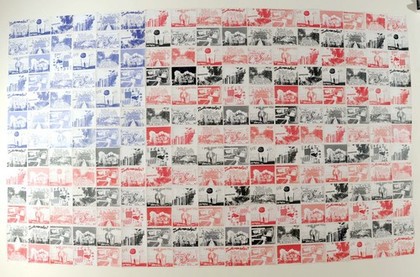My favorite app is going away - 5 reasons why it was so great
I knew this day was coming, but for quite some time I was able to delude myself into pretending it might not actually ever come to pass. But in the 'all good things must come to an end' department, I sadly share the news that news and discovery app Zite is shutting down, finally becoming completely absorbed into its acquirer, the similar-but-nowhere-near-as-good app Flipboard.
For those who never knew Zite, it was simply the best, most interesting, most engaging of all the 'magazine-style' apps that seemed to emerge from everywhere in the last few years. In Zite, you would follow topics like 'Technology', 'Business' or 'Human Resources', and Zite would serve up relevant articles from a wide variety of sources - big mainstream sites, blogs, even really obscure blogs like this one. You could 'thumbs up' or 'thumbs down' an article and over time Zite would learn about your content preferences and show you more of the things you tended to like and fewer of the things you tended to dislike. Was its learning algorithm perfect? No. But was it pretty good? You bet. So much so that in the four or so years I have used Zite it is almost always the first app I look at every day to try and catch up on the topics that I am most interested in.
While I pour one out in memory of my beloved Zite, let me share 5 reasons why the app was so great - lessons that I think are relevant not just for the narrow category of news apps, but for all kinds of workplace and consumer technology.
Here goes...
1. It was an app used by millions, but it seemed like it was built just for me
Zite never 'made' me see anything it wanted me to see before I could get to the content I was interested in. It never made me follow a topic that I was not explicitily interested in. It never created some kind of 'sponsorsed' layer on top of the content I was looking for. It felt like a blank slate more or less, that I could build upon over time to get it to work like I wanted it to. I would guess that the 25 or so topics I was following in Zite were likely unique across millions of users. I mean, I was following 'Human Resources', 'Graphic Design', and 'Barbecue', among lots of other things. It just felt so personal.
2. It was remarkably easy to use
No effort, no training, no heavy lifting to get Zite to begin to add value. See an article you like? Tap 'thumbs up' and you will see more like that one. See a topic you like? Tap the tag for the topic and it is added to your list of topics you are following. And those two interactions are about all you needed to know to use Zite and get plenty of value in return. The folks at Zite seemed to show remarkable restraint in building and enhancing the app in order to keep it so easy to use. Great technology is sometimes defined by what capability is left out, just as much as what features are built in.
3. It got better the more I used it
Over time, and 'learning' from the many, many times I tapped 'thumbs up' and 'thumbs down' on individual articles, Zite simply got better at presenting content that I was likely to be interested in viewing. It definitely evolved over the years to become really smart about the things I liked, what I did not like, and by the end of its life I found I was tapping 'thumbs down' very little. I never got sick of using it because it seemed to continue to get incrementally more valuable, despite not making many visible changes.
4. You could 'explore' and were challenged to discover new things
The other app I use the most on my phone is my feed reader, Feedly. Feedly is a pretty awesome tool for consuming content, but it pales next to an app like Zite in one important way - Feedly only shows me content that I have explicitly asked it to show me when I subscribed to a specific RSS feed. So it is great at giving me what I asked for, but not so great at turning me on to something new, something different, or at least a different take on a topic that it should know that I like. All of the things that Zite was really good at. The combination of Feedly and Zite gave me some overlap in terms of content, but together they worked well to bring me a great mix of viewpoints on subjects I was interested in. And many, many times Zite served up great content I would have never came across on my own. Literally all the time.
5. Finally, you could jump in at any time without feeling like you have missed everything
Feed readers, blogs, social networks that rely on the 'newsfeed' principle are all great, but all have one big shortcoming: if you have not checked them for awhile you fall impossibly behind. And it is really frustrating trying to get 'caught up'. Even Twitter recognized that by introducing the 'While you were away' updates in your timeline, (which I have found to be really useful, in case anyone cares). But with Zite, since it never operated on the 'timeline' paradigm, you could jump back in to the app, or a given topic in the app, and see what is new and interesting without the real or imagined pressure to get caught up. And in this age of information overload, who need another app or technology reminding us that WE ARE MISSING SOMETHING.
Can you tell how bummed I am about Zite going away? It was an almost perfect app.
The folks at Flipboard say that all the cool things and capabilities of Zite have not been fully incorporated in Flipboard, so I suppose I will give them the benefit of the doubt and try it out. But I am not optimistic.
I am going to miss Zite, but hopefully what was great about Zite will find its way into more and more applications for work and for outside of work as well. By focusing on personalization, discovery, simplicity, usability, and productivity Zite in many ways created the blueprint for what great technology can do.
And you know a technology was great when you are genuinely bummed to see it go.
RIP Zite.

 Steve
Steve


